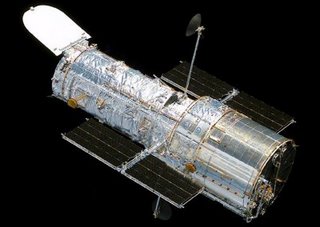Dry Neptunes and Dusty Galaxies
arXiv.org's preprint server delivers a bumper crop of interesting papers this morning:
Star-forming galaxies:
- Murphy et al combine the Spitzer Infrared Nearby Galaxies Survey (SINGS) and the Westerbork Synthesis Radio Telescope to study the nature and origin of Radio-Far Infrared correlation within the galaxies. They find that in the galaxies with the hifger star formation rates the radio emission is dominated by cosmic ray electrons that have diffused less far from their natal star forming regions (i.e. are presumably younger).
- Hirashita and Hunt find that the the average radio energy emitted per SNR over its radiative lifetime is very different in the active and passive blue compact galaxies SBS 0335-052 and I Zw 18, being roughly tens times higher in SBS 0335052 than in I Zw 18. I would have expected the opposite (as total energy losses per SN should be less for higher supernova rates per unit volume), so I'll have to read this one a bit more carefully...
- Buat et al compare galaxies selected from far-infra red (FIR) and far-ultraviolet (FUV) surveys (IRAS and GALEX respectively). The luminosity functions of the two samples differ, even in bolometric luminosity, but the bulk of the bolometric luminosity from FUV or FIR-selected galaxies in the local universe is emitted by galaxies with log10 (Lbol/Lsun) ~ 10. They also have specific star formation rates (total star formation rate/galaxy mass) significantly higher than the average SSFR from the optically-selected SDSS sample.
Planets:
- Wiktorowicz and Ingersoll consider whether liquid water oceans exist at any level within ice giants like Neptune or Uranus. The answer: probably not (sorry SciFi authors) now (but maybe in the future as it cools. Hot extra-solar neptunes also won't have water oceans unless the lose a lot of their hydrogen and/or helium.
- Marley et al point out that existing models of gas giant thermal evolution (i.e. how hot they are with time, which translates into how bright they'd be) start off with initial conditions NOT based on modern planet formation models. Correcting this leads to young Jupiters that are fainter than the older predictions.
- Lecavelier des Etangs (that must be an interesting family history!) considers the evaporation of extra-solar planets by their parent stars. Interestingly the prediction is that the Neptune-mass planets recently found must contain a significant amount of rock (or water, I wonder?) if they're to have survived evaporation for long.
- Last but not least: X-rays from Jupiter! Branduardi-Raymont et al analyze an XMM-Newton observation of Jupiter. They conclude "The XMM-Newton observations lend further support to the theory that Jupiter's disk X-ray emission is controlled by the Sun, and may be produced in large part by scattering, elastic and fluorescent, of solar X-rays in the upper atmosphere of the planet." What gives me cause for concern (about my science, not theirs) is that the spectra are pretty much indistinguishable from the thermal hot plasma models I fit to the diffuse X-ray emission from star forming galaxies and superwinds.









